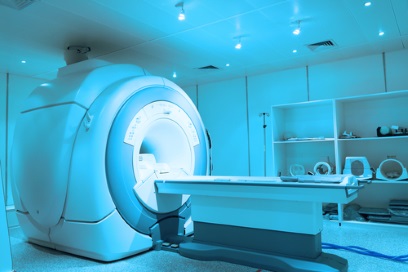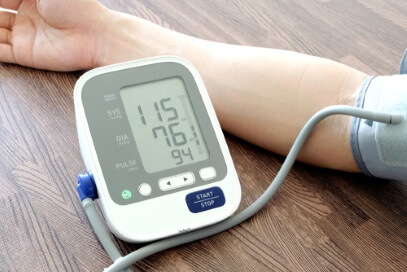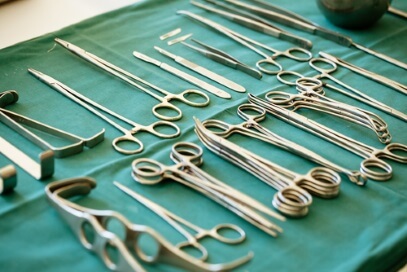
Medical Engineering Design - MSc
From CT scanners, X-ray and MRI machines, to pacemakers, defibrillators, stethoscopes and even spectacles, medical engineering has saved and enhanced lives, improving treatment and delivery for patients and medical practitioners alike. Our MSc prepares you for careers in this fascinating design discipline, inventing the next generation of ground-breaking medical devices. You’ll have the chance to work on a real project, gaining invaluable work experience via an optional internship. The course is led by Professor Peter Ogrodnik, a named inventor on numerous patents, who literally wrote the book on Medical Device Design, now a core text in R&D departments worldwide.
Month of entry
- September, January
Mode of study
- Full time, Part time
Fees for 2024/25 academic year
- UK - Full time £12,700 per year. Part time £7,000 per year.
International - £24,100 per year.
Duration of study
- 1 year full time, 2 years part time
Why study Medical Engineering Design at Keele University?
Course summary
The global market for medical devices exceeded US $335 billion in 2021 with a growing demand for products and technological solutions to help combat problems associated with an ageing population, global pandemic and rise in the number of patients suffering chronic health conditions.
Our industry-focused MSc builds on our internationally-leading reputation for medical engineering and longstanding expertise in medical devices. Taking you to the next level of design competence, it will equip you with essential product design skills and the confidence to approach design problems as a professional engineering designer throughout the product development life cycle.
In the highly-regulated MedTech development industry, accuracy and safety sit at the heart of good engineering design – failure can cause serious harm to users and damage commercial prospects. Developing your understanding of the concepts that underpin medical device design, you’ll focus on the approval process from the beginnings of product ideation and initial concepts right through to testing and release to market.
You’ll learn to navigate complex industry standards and regulations with ease, while developing practical skills in the highly regulated environment of Medical devices design and development. You’ll also build a strong foundation in fundamental engineering concepts, such as fluid mechanics, design, materials and mathematical modelling.
You’ll be taught by staff with real world experience of developing and commercialising medical products, none more so than Course Director Professor Peter Ogrodnik, a world-leading expert in medical device design with over 20 years’ research experience and author of the core text in this area. Sold across Europe and the United States, his technological innovations have improved the treatment of fractures and spinal injuries for thousands of patients.
Based in the Guy Hilton Research Centre, you’ll have access to specialist Computer Aided Design (CAD), Finite Element Analysis (FEA) and Computational Fluid Dynamics (CFD) software; a fully-equipped validation and verification laboratory; and the local trauma hospital.
Excellent industry links provide opportunities to work on ‘live’ projects briefs and you’ll be encouraged to apply for an internship to gain valuable practical industrial experience. Previously, our students have helped determine seasonal trends for allergies in domestic environments, conducted sustainability assessments for a novel packaging material, and improved waste efficiency of a local sheet metal company.
Because the course develops your creative engineering design skills whilst maintaining the rigour of a highly regulated design environment, you’ll be able to transfer the skills and knowledge you develop into a range of industries. You could move into more general engineering design or associated careers, in intellectual property protection, as a patent lawyer, for example. Alternatively, you could pursue a career in technical sales and marketing, consultancy or corporate finance.
The research skills you gain provide excellent preparation for a PhD and can prove an ideal stepping-stone into research and development activities in either industry or in academia.
Other courses you might be interested in:
Next steps
ACCREDITATION AND PROFESSIONAL RECOGNITION
This programme is accredited by the Institute of Physics and Engineering in Medicine.
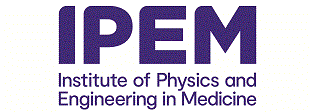
Course structure
The aim of the MSc in Medical Engineering Design is to turn you into a medical device designer so that you can work in this highly regulated design discipline. The course adopts a holistic approach to medical device design, addressing healthcare regulatory compliance, design build and specification, together with the functionalities and benefits to satisfy end users’ needs, be they patients, medical practitioners or those funding healthcare.
Core modules introduce you, and immerse you in design methodology, design control, international medical devices regulations, auditing, risk management and risk analysis, team working, and medical device specific technical documentation.
The course capitalises on research and innovation taking place within the University’s Orthopaedics and Biomechanics Research Group, which is led by Course Director Professor Ogrodnik. Comprised of engineers, scientists, consultants, nurses, mathematicians, psychologists, veterinarians and environmentalists, the group’s sole aim is to improve the health and wellbeing of humans and animals through science based interventions.
The flexible structure of the course enables you to personalise your study according to your interests, choosing optional modules from a broad range of subjects, which span the disciplines of biology, maths and engineering. This, coupled with clinical visits, specialist seminars and a choice of dissertation projects that span fundamental research to clinical translation of technologies, ensures a truly ‘bench to bedside’ approach.
Interacting with active researchers, clinicians and practitioners also gives you a greater appreciation of the context in which healthcare engineering operates, including vital safety, environmental and economic concerns, for instance, in relation to medical devices and technology services.
The MSc Medical Engineering Design can be studied as either a one-year full-time or two-year part-time course, with start dates in September and January. You will complete 180 credits to obtain the master’s qualification, comprising five compulsory modules and four optional modules, including the core Project Dissertation (60 credits). There are also two interim awards available, depending on how many modules (and credits) have been successfully completed: a Postgraduate Certificate for 60 credits; and a Postgraduate Diploma for 120 credits.
Modules
The module details given below are indicative, they are intended to provide you with an idea of the range of subjects that are taught to our current students. The modules that will be available for you to study in future years are prone to change as we regularly review our teaching to ensure that it is up-to-date and informed by the latest research and teaching methods, as well as student voice. The information presented is therefore not intended to be construed and/or relied upon as a definitive list of the modules available in any given year.
Core modules
Engineering for Medical Applications (15 credits, Semester 1)
This module will cover the fundamentals of mechanics, electronics and electromagnetism necessary to understand the application of engineering principles to medicine and biology. This will enable students from varying backgrounds and career paths to transition into the advanced topics covered in the core and specialist modules in biomedical engineering. In addition to the lectures, students will take part in a workshop-based project to apply the theory they have learned to practical measurement.
Medical Devices Design: Design Control Methodologies (15 credits, Semester 1)
This module aims to develop engineering design concepts required in order to work as a designer within the context of medical devices and the healthcare industry. These will include investigation of design models, design control and communicating designs between industries. Team working is an essential aspect of design and this will be explored and developed.
Medical Devices Design: Advanced Materials and Manufacturing (15 credits, Semester 1)
This module aims to develop engineering concepts required in order to work as a designer within the context of medical devices and the healthcare industry. These will include investigation of standard and advanced manufacturing and joining processes, and communicating designs between industries. As it is virtually impossible to develop modern medical devices without the use of electronics, electronic components and software these will also be explored within a manufacturing context. Team working is an essential aspect of design and this will be developed.
Experimental Research Methodology (15 credits, Semester 1-3)
The Experimental Research Methodology Module gives students the skill set that is required for their development in a scientific career; from learning how to take notes in research seminars allowing them to write a comprehensive literature review in that area, to making sure they are efficient with their time in written examinations by giving them the chance to mark practice questions and decide where the marks should be given. The module brings together elements of professional development that should not be overlooked. A range of seminars, workshops and taught classes are timetabled during which students will have the opportunity to learn first-hand a range of skills necessary for them to achieve their best in their Masters programme. Classes on statistics will further support students in other theoretical and practical aspects of their course.
Medical Devices Design: Regulatory Frameworks (15 credits, Semester 2)
This module aims to develop the awareness of the regulatory frameworks that control this exciting environment in order to be able to design components and products successfully within the context of medical devices and healthcare technologies. Particular emphasis will be placed on design within a highly regulated environment. Working in teams is an essential aspect of design, you will be given the opportunity to work in teams and reflect on team performance throughout the module.
Medical Devices Design: Quality by Design (15 credits, Semester 2)
This module aims to develop advanced engineering design skills required in order to be able to design components and products successfully within the context of medical devices and healthcare technologies. It will include a critical evaluation of models and tools used in creative engineering design. Particular emphasis will be placed on Quality By Design within a highly regulated environment. You will receive essential training on risk management and auditing. Working in teams is an essential aspect of design, you will be given the opportunity to work in teams and reflect on team performance throughout the module.
Project - Medical Technology (60 credits, Semester 3)
The dissertation is an opportunity for students to undertake laboratory based research in their chosen topic and should demonstrate their understanding of the field via applications in healthcare. During the dissertation period, the student will be assigned a project supervisor, having agreed a research project in discussion with research institute staff. The location for the project may be the research institute, Keele campus, hospital or with an industrial partner.
Optional modules
You will choose two optional modules from the following:
Clean and Green Technologies (30 credits, Semester 1)
You’ll be introduced to the key concepts, debates and processes around renewable technologies, including bio, wind, wave, solar thermal and photovoltaic, hydro and marine energy. The module aims to support your professional skills development in technical information processing, feasibility assessment and specifying suitable technology for sites around the world, taking into account economic, social and technical factors. With an emphasis on how we can minimise carbon footprint and assess the contribution each might make to energy needs, you’ll be provided a framework to understand and evaluate key drivers and barrier to energy development.
Biomechanics (15 credits, Semester 1)
Biomechanics involves studying the structure, materials, function and motion of biological systems at a cellular level, identifying favourable properties, such as load-bearing capacity, and changes that occur naturally or as a result of chemical and other reactions. Discovering how and why organisms behave the way they do can inform new synthetic and engineered designs, for example, when treating cancer. This module offers an applied perspective on biomechanics at an advanced level, for example, analysing forces transmitted to cells at skeletal joints or bone. In an experimental workshop, you'll gain hands-on experience mechanically testing bone.
Human Physiology and Anatomy (15 credits, Semester 1)
Setting the foundation in a biological context in preparation for the study of more advanced topics, this module provides you with a broad knowledge of human physiology and anatomy. You’ll develop your understanding of the structure and function of major tissue types, organs and systems, how their physiology is assessed and what happens in the context of disease. Please note that if you have no prior experience of anatomy-based study, you will be encouraged to take this option.
Physiological Measurements (15 credits, Semester 1)
Learning why and how physiological processes of humans are measured and monitored, this module aims to improve your analytical skills in different physiological measurement, diagnostics and therapy techniques. Studying the basic principles of biological sensing within research and clinical environments, you’ll be given demonstrations and hands-on use of devices commonly used for physiological measurement, such as the use of biomedical transducers, biosensors, devices for oscillometry, ECG (electrocardiogram) and EOG (electrooculography). To help you better understand how to select appropriate biological tests and devices, you will discuss and evaluate the different instrumentation used to assess specific anatomical structures, such as the heart and lungs, to measure their physiological properties by medics and in biomedical research.
Please note that if you have no prior experience of anatomy-based study, you will be required to take this option.
Biomaterials (15 credits, Semester 2)
Taking a multidisciplinary approach, this module provides an overview of all types of materials, natural and synthetic, used in biological environments to support, enhance, or replace damaged tissue or a biological function. It explains the fundamental aspects of biomaterials from a materials perspective, but with particular focus on their use and potential wear within a biological ‘host’. You will develop a systematic knowledge, ranging from the physical structure and chemical properties of biomaterials, to how they interact with biological tissues during implantation, for example, in the case of skin grafts, heart valves and hip replacements. This will help you learn how materials are assessed within the clinic and how material properties can be altered/engineered to produce biomaterials with enhanced abilities and properties.
Case Studies in Sustainability (15 credits, Semester 2)
The ability to assimilate data, work as a team and solve problems is fundamental to any career development. In this module, you will work as a member of a team to analyse and consider scientific, political, management and ethical issues relating to problems in the environmental sustainability and green technology sectors. Reviewing several case studies and scenarios, you will increase your awareness of issues relevant to the sustainability agenda, such as waste products from standard procedures. You will also build your confidence in assessing and evaluating complex and often conflicting information.
Green IT (15 credits, Semester 2)
You will gain an understanding of the sustainability challenges facing the IT industry and of the strategies and techniques that are available to address these challenges, such as tablets and mobile telephones. The module also covers ways in which IT can enhance sustainability in other sectors, for example, through the use of simulation and modelling software and IT tools such as video conferencing, and how to identify opportunities to extend their use.
Learn a language
On this course, you can additionally choose to study a modern foreign language, something we strongly recommend. While this will not count towards your degree, it will add a much sought-after skillset to your CV. In the past, students have studied Spanish, German and Russian. You can select to study these, French or Mandarin, amongst many others. Those wishing to improve their spoken and written English may take part in Use of English lessons.
Next steps
Research Excellence
Keele's engineering research is classified as either world-leading or internationally excellent
(4* or 3* rated research), Research Excellence Framework, 2021
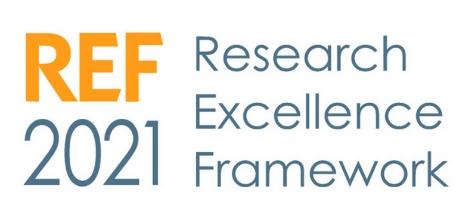
Entry requirements
Next steps
Entry requirements
The following section details our typical entry requirements for this course for a range of UK and international qualifications. If you don't see your qualifications listed, please contact us to find out if we can accept your qualifications.
Typical offer
Please ensure that you read the full entry requirements by selecting your qualifications from the dropdown menu below. This will include any subject specific, GCSE/Level 2 Maths, and English language requirements you may need.
Please select your country from the drop-down list below for the full entry requirement information
UK
2:2 degree in an engineering, science, medicine, or health subject
or
demonstrated professional or relevant qualifications or experience
You will also need: an English language qualification (see below)
Bangladesh
60% in a 4-year degree or 3-year degree with a 2-year Master's in an engineering, science, medicine, or health subject from a public university
or
CGPA 2.8 in a 4-year degree or 3-year degree with a 2-year Master's in an engineering, science, medicine, or health subject from a private university
or
demonstrated professional or relevant qualifications or experience
We don’t accept degrees from certain universities, please see our Bangladesh Country Page for more information
You will also need: an English language qualification (see below)
Canada
70% or C or a GPA of 2.5 in a degree (Ordinary or Honours) in an engineering, science, medicine or health subject
or
demonstrated relevant professional qualifications or experience
You will also need: an English language qualification (see below)
China
70% in a degree in an engineering, science, medicine, or health subject
or
65% in a degree in an engineering, science, medicine, or health subject from a '211' university
or
demonstrated professional or relevant qualifications or experience
You will also need: an English language qualification (see below)
Ghana
Second class degree in an engineering, science, medicine, or health subject
or
demonstrated professional or relevant qualifications or experience
You will also need: an English language qualification (see below)
India
55% or CGPA 6/10 in a degree of at least 3 years in an engineering, science, medicine, or health subject
or
demonstrated professional or relevant qualifications or experience
You will also need: an English language qualification (see below)
Kenya
Second class degree in an engineering, science, medicine, or health subject
or
demonstrated professional or relevant qualifications or experience
You will also need: an English language qualification (see below)
Nepal
60% / 2.4 in a 4-year Bachelor's degree in an engineering, science, medicine, or health subject
or
65% / CGPA 2.8 in a 3-year Bachelor's degree in an engineering, science, medicine, or health subject
or
demonstrated professional or relevant qualifications or experience
You will also need: an English language qualification (see below)
Nigeria
Second class degree in an engineering, science, medicine, or health subject
or
demonstrated professional or relevant qualifications or experience
You will also need: an English language qualification (see below)
Pakistan
We accept a range of qualifications from Pakistan. Please visit our Pakistan Country Page for more information
or we will consider demonstrated relevant professional qualifications or experience
You will also need an English language qualification (see below)
South Africa
Second class division 2 / 60% in a Bachelor's degree with Honours in an engineering, science, medicine, or health subject
or
Second class division 1 / 70% in an Ordinary Bachelor's degree in an engineering, science, medicine, or health subject
or
demonstrated professional or relevant qualifications or experience
You will also need: an English language qualification (see below)
Sri Lanka
55% in a Special Bachelor's degree in an engineering, science, medicine, or health subject
or
demonstrated professional or relevant qualifications or experience
You will also need: an English language qualification (see below)
Uganda
Second class degree in an engineering, science, medicine, or health subject
or
demonstrated professional or relevant qualifications or experience
You will also need: an English language qualification (see below)
Zimbabwe
Second class degree in an engineering, science, medicine, or health subject
or
demonstrated professional or relevant qualifications or experience
You will also need: an English language qualification (see below)
English language requirements
All of our courses require an English language qualification or test. For most students, this requirement can be met with a 4 or C in GCSE English. Please see our English Language guidance pages for further details, including English language test information for international students. For those students who require an English language test, this course requires a test from Group C.
References
Normally, you will need to provide at least one academic reference to support your application unless you have been out of study longer than two years. If it has been more than two years since you last studied on a degree-level programme, you will normally need to provide an employment reference instead. For more information about Academic References, please see our Postgraduate how to apply web pages.
Personal Statement/Statement of Purpose
Please see our Postgraduate how to apply web pages for guidance on what to include in your personal statement.
Recognition of Prior Learning
The Recognition of Prior Learning (RPL) is a process which enables applicants to receive recognition and formal credit for learning acquired in the past through formal study or work and life experiences.
RPL can also be requested for admission onto the start of a programme in lieu of the admission requirements. For more information, see our Recognition of Prior Learning web pages.
Professional qualifications and work experience
The majority of our courses will consider relevant work experience and/or professional qualifications at the appropriate level, as an alternative to an undergraduate degree for entry. The work experience should be for a sustained period and at a suitable level, based within a relevant sector to your chosen course.
Admissions staff will review your work experience and/or professional qualifications during the assessment of your application to ensure suitability in terms of relevancy, level and appropriate learning outcomes.
General information
The entry grades outlined in this section indicate the typical offer which would be made to candidates, along with any subject specific requirements. This is for general information only. Keele University reserves the right to vary offer conditions depending upon a candidate's application.
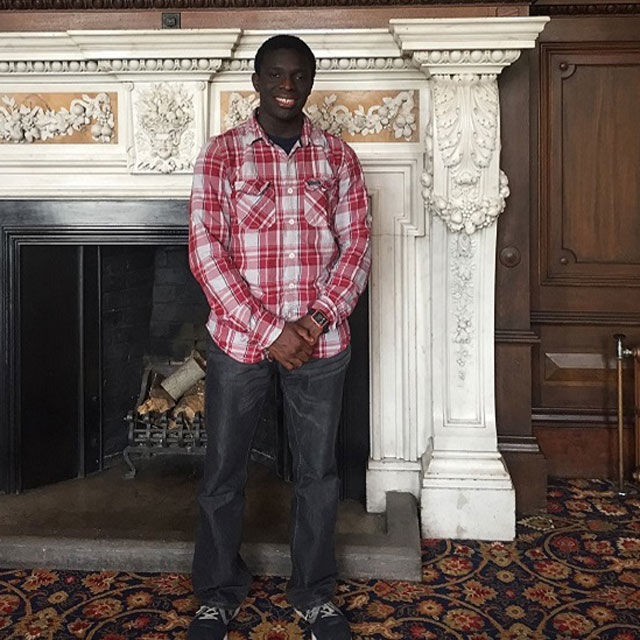
"The course exceeded my expectations and really gave me the skills I needed to progress my career in the industry of medical device engineering. This course didn’t just provided me with the knowledge in medical device design, but it also gave me the essential skills in product design, survey, and release to market, which is obviously critical. It gave me the confidence to work through a new product development from initial conception to market release, whilst adhering to all the relevant industry standards and regulations."
Funding
We are committed to rewarding excellence and potential. Please visit our scholarships and bursaries webpage for more information.
Please note, if your course offers a January start date, the January 2024 start date falls in the 2023/24 academic year. Please see the 2023/24 academic year fees for the relevant fees for starting this course in January 2024.
Planning your funding
It's important to plan carefully for your funding before you start your course. Please be aware that not all postgraduate courses and not all students are eligible for the UK government postgraduate loans and, in some cases, you would be expected to source alternative funding yourself. If you need support researching your funding options, please contact our Financial Support Team.
For continuing students, fees will increase annually by RPIX, with a maximum cap of 5% per year.
Next steps
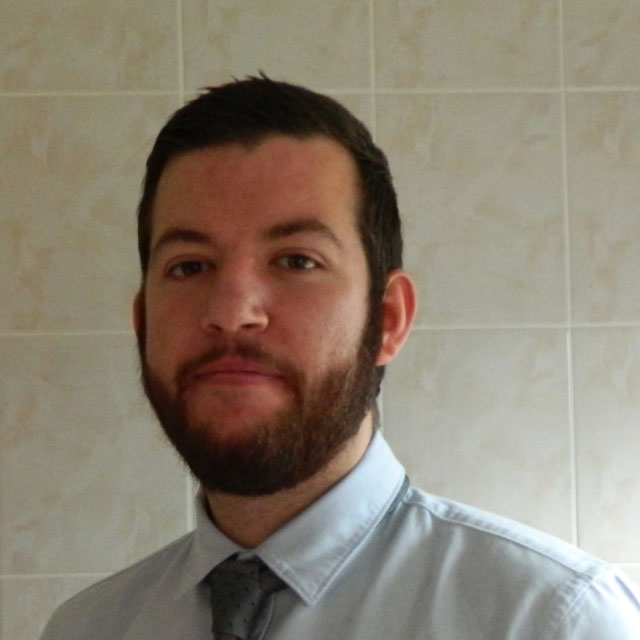
"The course has helped me develop a better knowledge of concepts that underpin medical device design but also helped to give me an understanding of how to approach any design problem. The course also allowed me to work on a real world project, rather than a hypothetical one, which was both challenging but fun. I believe learning with Professor Ogrodnik has been pivotal in developing a methodology to follow and adhere to when designing new medical devices. By having a lecturer with a high level of experience it made it useful when debating and developing understanding of the reasoning behind why certain actions are taken."
Your career
The prevalence of chronic health conditions, such as heart disease, cancer and diabetes, has led to a rise in patients requiring diagnostic and surgical intervention and the medical devices to support this, fuelling the demand for medical engineers and designers.
The global medical devices market is projected to grow from US $455.34 billion in 2021 to US $657.98 billion in 2028, with leading market players, like Johnson & Johnson, Novartis AG, Abbott Laboratories, Medtronic investing billions in R&D.
This course aims to prepare you for roles in the design, application or regulation of medical devices within specialist design consultancies or medical device companies. You may choose to specialise, for example as a human factors engineer or user experience (UX) specialist, or in specific functions, such as quality control or leadership and management of R&D.
The modular structure of the course, with flexibility to choose from a wide range of optional modules, allows you to tailor the course to suit your career aspirations, building on your existing strengths and interests, while developing understanding in key topics. This can open up further career opportunities in the pharmaceutical and biotechnology sectors, for example, in bioengineering research.
An ideal option for intercalating students who wish to undertake research training in field, an excellent route for those who wish to pursue specialist clinical training or continue their research training in medicine and register for a PhD, typically a requirement to work in the sector.
The course has enjoyed a high success rate in students gaining employment in Medical Engineering. Our graduates have gone to work as design support officers, product developers, any other roles know of with companies including Endomag, Lucideon, Convatech and UniLever. In addition, many have enjoyed their time at Keele so much, they have stayed on to take PhDs in medical devices design.
Positions may include:
- Academic
- Biomedical engineer
- Design support officer
- Development engineer
- Manufacturing specialist
- Mechanical engineer
- Medical design engineer
- Product developer
- Product design engineer
- Research associate
- Research scientist
- Sales representative (medical technology)
- Scientist
- Senior Scientist (R&D)
- Technician
Next steps
Teaching, learning and assessment
How you'll be taught
The course is primarily taught through subject-centred lectures, interactive-styled conferences, seminars and laboratory-based sessions.
This is supported by a range of workshops, tutorials, guest lectures and research seminars by nationally and internationally known scientists, engineers and clinicians, working at the forefront of regenerative medicine. Previous seminars have been led by academic researchers and industry partners on a range of current topics related to the course discipline.
All modules have some form of practical element, capitalising on our state-of-the-art cell culture labs and tissue engineering facilities, and exposing you to the same specialist equipment and services found in this sector. Where possible, you'll be given opportunities to engage with industry experts, attend site visits to companies and research laboratories, and instigate a conversation with relevant stakeholders.
Each November, we also plan an optional? field trip* to coincide with the world’s largest medical devise trade fair, Medica. In 2021, the event attracted 46,000 visitors from 150 countries, interacting with over 3,000 exhibitors and a comprehensive range of innovations for outpatient and inpatient care, including every step of their development and manufacture.
Allocated at the start of your studies, your personal tutor will provide pastoral support and your Course Director will guide you through the year by engaging you in a personal development plan that culminates with students recognising their employability skills and career options. You'll also receive dedicated project supervision during the Summer projects. As well as web-based virtual learning materials, you’ll have full access to two libraries, online journal access and a suite of dedicated computers for exclusive use by MSc students on the course.
*The field trip is an aspiration and will depend on student demand and affordability. Because accommodation can be expensive, you should be prepared to allocate a budget of about £500 for the trip.
How you’ll be assessed
Modules are assessed by a mixture of assessment methods, including lab reports, essays, presentations and online examinations to demonstrate your understanding of subject-specific content, as well as your analytical abilities and your evaluation of particular concepts and methodologies. Formative assessment occurs in a continuous process driven by lecturer-led discussion sessions, one-on-one mentoring, and practice presentations and posters.
As part of the course provision, you will have opportunity to follow styles of journal articles in your assignments. Such assessment ensures your competency in essential academic skills, such as referencing, quoting, selecting relevant material, answering the question set, and written English, vital if you intend to pursue a research career. However, it also helps you develop a range of essential transferrable skills, such as problem-solving and critical thinking, time management and planning, written and verbal communication and numeracy.
Next steps
Keele Postgraduate Association
Keele University is one of a handful of universities in the UK to have a dedicated students' union for postgraduate students. A fully registered charity, Keele Postgraduate Association serves as a focal point for the social life and welfare needs of all postgraduate students during their time at Keele.

Hugely popular, the KPA Clubhouse (near Horwood Hall) provides a dedicated postgraduate social space and bar on campus, where you can grab a bite to eat and drink, sit quietly and read a book, or switch off from academic life at one of the many regular events organised throughout the year. The KPA also helps to host a variety of conferences, as well as other academic and career sessions, to give you and your fellow postgraduates the opportunities to come together to discuss your research, and develop your skills and networks.
Our expertise
Teaching staff
Research within the School of Pharmacy and Bioengineering bridges the interface between new advances in science and technology with medicine and clinical practice, bringing together biological scientists, physicists, chemists, engineers, mathematicians and clinicians. Our exceptional track record in bench and bedside regenerative medicine research builds on the reputation and success of the former Institute for Science and Technology in Medicine (ISTM) which has now integrated within the School.
This course is led by Professor Peter Ogrodnik, a Chartered Mechanical Engineer and Member of the Institution of Engineering Designers, who was a founding director of the University spinout Intelligent Orthopaedics Ltd, and is a founding partner of Metaphysis LLP. Through this corporate involvement, Professor Ogrodnik understands the realities of applied research for industry, for example, he was a member of the AWM Healthcare Technologies cluster opportunity group.
You will be taught by staff who are highly rated World Class researchers, 96% being rated at 3*/4* in REF 2021 (https://results2021.ref.ac.uk/profiles/units-of-assessment/12) and whose impact in medical engineering is 100% 3*/4*. Our exceptional track record in medical engineering research builds on interdisciplinary work between ourselves, national and international hospitals, and other research institutes. Our location means we are closely allied to the largest trauma centre in the UK (Royal Stoke University Hospital), and also with the specialist orthopaedics hospital based in Oswestry (Robert Jones and Agnes Hunt).
Our staff have been at the forefront of many innovative developments, working closely with healthcare partners including the RSUH. A brief review of developments conducted by our centre will reveal many inventions now in everyday use. For example, the Hartshill Frame is an implant in widespread use for spinal surgery across the world. We have helped transform the treatment of leg fractures by two devices in particular. The Staffordshire Orthopaedic Reduction Machine (STORM), which realigns leg fractures prior to surgery, bringing them back to near perfect alignment, and IOS, a titanium alloy external fixator which promotes healing growth. Much of our research is now in connected devices and we are a leading part of the new Digital Health theme within the digital Society Institute (https://www.keele.ac.uk/digital-society-institute/).
Teaching team includes:
- Professor Peter Ogrodnik, Senior Lecturer and Head of Orthopaedics and Biomechanics Research Group – a Chartered Mechanical Engineer, Peter has conducted research into optimising the treatment of tibial fractures for over 20 years. Having founded two medical device companies himself, he has enhanced the application of engineering design principles to the solution of medical devices and his book Medical Devices Design is a core text in core R&D departments. In 2021, he received the Inspire, Support, Achieve Award from the Institution of Engineering Designers for his work to establish the charity ENG4, providing engineering solutions relating to healthcare during the Covid-19 pandemic.
- Dr Nicholas Wragg, Lecturer in Bioengineering – His research is focused on complementary areas of regenerative medicine: Musculoskeletal Tissue Engineering, and Regenerative Medicine Biomanufacturing and Process Development.
- Professor Nicholas Forsyth, Professor of Stem Cell Biology – His research is focused on three primary inter-related areas: basic biology of stem cells; cellular response to physiological norms; and the derivation of clinically useful cell types.
- Professor Ying Yang, Professor in Biomaterials and Tissue Engineering – Ying's current research has been focused on the application of engineering strategies in translational medicine. This includes smart nanofiber design and applications, detection of variation of cell adhesion capacities, developing immunemodulating materials, exploring unique techniques to detect heterogeneous cellular populations and correlating the structures of collagen based matrices to diseases.
- Dr Jan-Herman Kuiper, Senior Lecturer in Biomechanics – Jan has extensive experience in the use of Finite Element-based computer models for design optimisation, modelling of hydrated tissues and bone, and biological processes such as adaptive bone remodelling and fracture repair. One of his long standing interests is the control of biological processes through mechanical conditions, in particular, mechanical guidance of skeletal tissue formation, and the development and pre-clinical testing of joint replacement implants, bioresorbable orthopaedic devices and bone substitution products.
- Dr Sharon George, Senior Lecturer – Sharon is a specialist in sustainable development, technology development and deployment, who works with local government authorities, businesses, entrepreneurs and the public on engagement projects involving technology and behaviour change. Her research interests include distributed power generation using renewable energy, sustainable municipal resources management, and circular design.
Next steps
Facilities
The School of Pharmacy and Bioengineering, within the Faculty of Medicine and Health Sciences, is located on two main sites: Hornbeam Building at the heart of Keele University campus and the Guy Hilton Research Centre in Hartshill with additional laboratories and facilities at three main NHS hospitals; University Hospitals of North Midlands (UHNM), Robert Jones and Agnes Hunt (RJAH) Orthopaedic Hospital, Oswestry and the Haywood Hospital, Stoke on Trent.
Guy Hilton Research Centre
The Guy Hilton Research Centre, which opened in 2006, provides extensive facilities for postgraduate taught and research students at the heart of a research-active environment. This includes a a dedicated room for MSc students and large study suite for PhD/MPhil/DM students with 24/7 access and Wi-Fi.
As well as generic laboratories, specialist facilities include dedicated labs for biomaterials and bioreactors, a class 100 clean room for supporting research, and molecular facilities which support the advanced biotechnology, drug development, development of magnetic nanotechnology in therapeutics and diagnostics, and SIFT-MS (selected ion flow tube mass spectrometry) technology for breath analysis.
Please note, the Guy Hilton Research Centre is based in Hartshill, Stoke-on-Trent, and is roughly a 30 minute journey from Keele campus by bus.
Electron Microscope Unit
The Electron Microscope Unit has a range of microscopic techniques available to capture images, make slides and acquire data from biological, geological, physical and chemical specimens. These include: visible and electron microscopy; light microscopy; confocal/two photon imaging; field emission scanning electron microscopy (SEM); conventional transmission electron microscopy (TEM) and X-ray microanalysis; atomic force microscopy (AFM); ultramicrotomy; vibratome; and microslice.
Proteomic Mass Spectrometry facility
Run in collaboration with Guy Hilton Research Centre (GHRC) and the Robert Jones and Agnes Hunt Orthopaedic Hospital (RJAH) in Oswestry, this facility offers a range of mass spectrometry equipment based at Huxley Building on Keele campus. Providing proteomics and mass spectrometry services for UK based researchers, equipment includes a 4800 MALDI TOF/TOF and 3200 QTRAP tandem quadrupole mass spectrometers, with nanoflow HPLC interfaces.
Central Science Laboratory (CSL)
The University’s £34m Central Science Laboratory (CSL) opened its doors to students in September 2019 and provides 5,300m2 of modern, co-located science laboratories. Over £2m alone has been spent on industrial research-grade analytical and laboratory equipment that will be used by students in their day-to-day laboratory teaching. Access to state-of-the-art facilities and high specification equipment will ensure you are well prepared for scientific or industrial employment post-graduation. The environment mirrors the multi-faceted nature of working life and the shared space allows group working and collaboration between disciplines, building the skills and experience much valued by employers.
David Weatherall Laboratories
These multi-users laboratories house equipment for histology, physiology, pharmacology, biochemistry and microbiology practicals. Here students learn to use stethoscopes, sphygmomanometers, microscopes, computerised spirometry, ECG and EMG equipment, make accurate drug dilutions, and gain skills in basic life support on resuscitation manikins. Facilities are also available to learn sterile technique, ophthalmoscopy, otoscopy and drug delivery. The IT laboratory, which has extended opening hours, houses over 50 networked PCs with additional facilities for digital imaging, scanning, and printing.
Next steps


